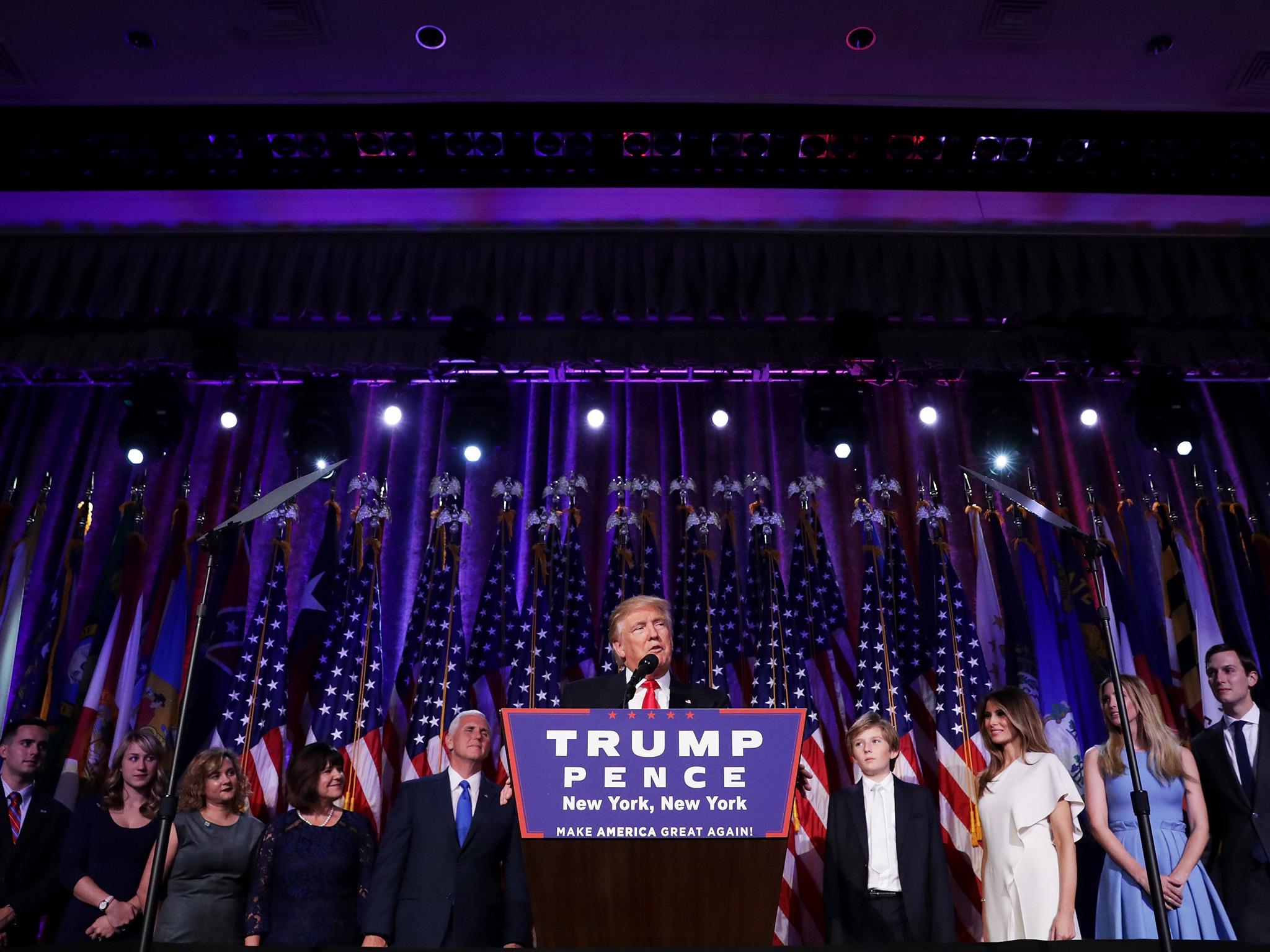From his very first speech as President-elect, Donald Trump’s economic policy doesn’t add up
The US will be more dependent on inward investment flows from China and Mexico if its economy is to expand in the way Donald Trump hopes, not less


It is, for the global finance and business communities, a shock – and that was reflected in financial markets in early trading today. The “experts” have been wrong again. But all experience suggests that we should distrust first-day reactions about economic issues, as about most things. Markets, like experts, get things wrong too.
Donald Trump’s victory, coupled with Republican control over both houses of Congress, will over time set the US economy on a different trajectory. But it will be not so much an about-turn, more a course correction. That correction is likely to have both positive and negative implications for the rest of the world, but we should be careful not to over-estimate its impact, at least in the short-term.
Start with the market reaction. Donald Trump’s gracious victory speech did two things. It defused much of the negative impact of the shock; and it reminded everyone that the US would have a more expansionary fiscal policy under a Trump presidency than it would have done under a Clinton one. This latter point may take time to be reflected in the markets, and the negative tone on international trade will put pressure on emerging markets. But it is quite plausible that US shares will rise rather than fall over the next few weeks. The dollar should recover swiftly too.
The reason for this is the easing of fiscal policy. With a supportive Congress it should be possible for the new President to get his proposed cuts in both corporation tax and income tax into law next year. Big business did not support a Trump victory but it will benefit from it. Of course, recession fears remain, for this has been a long expansion and the economy is pushing towards full capacity, but US growth next year may surprise on the up side, not the down. Additional spending on infrastructure will take time to feed through – there is no such thing as a shovel-ready project – but such investment will inevitably add to growth in the medium-term.
It is hard, however, to see growth being fast enough to close the budget deficit. A looser fiscal policy will be countered by a tighter monetary one. There was great hostility in the Trump campaign towards the Federal Reserve and to its chair Janet Yellen. But the Fed is independent and it would be unwise of any new administration to pick a fight with it. Right now the markets estimate that the chances of another rise in interest rates in December have shrunk from a near-certainty to an even bet. But this election increases the intellectual case for higher rates. Once they have settled down the markets may come to accept that such rises are inevitable and welcome.
So, it seems likely there will be a looser fiscal policy and a tighter monetary one than there otherwise would have been. What else? The biggest uncertainty is trade policy.
We know what Donald Trump has said, threatening to bring in tariffs on imports of Chinese and Mexican goods. We don’t know what he will do. The global supply chain is so complex that any serious retreat from the gradual freeing of trade and capital flows might seem impracticable. If you buy a new iPhone it will have been assembled in China. The US will be more dependent on inward investment flows if its economy is to expand in the way Donald Trump hopes, not less.
But support for ever-freer trade is waning in the US, as elsewhere. Support for greater freedom of movement for labour has pretty much vanished, despite the economic advantages it has been shown to bring. Globalisation has brought huge increases in living standards in China, India and elsewhere in the emerging nations. It has been the great motor of global growth, but support is fragile in the developed world. It will be more fragile after yesterday’s vote. A return to protectionism would be a disaster for the world economy. On a medium-term view, that is the biggest concern following yesterday’s vote.
And the biggest hope? That the new President will recognise that US influence is greatest when it co-operates in an open world economy rather than when it tries to cut itself off from it.

Join our commenting forum
Join thought-provoking conversations, follow other Independent readers and see their replies